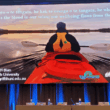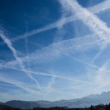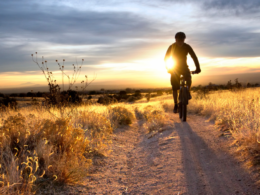DNA has opened up new avenues of research in genealogy, human evolution, and criminal forensics among others. So what are the links between DNA and sustainable tourism? In this episode, I consider the impact DNA research and technology may have on sustainable tourism – specifically sex tourism where exploitation of women is rife.
Useful links/sources
This podcast is extensively informed by Four Corners ‘Sex Tourism: My Father’s Secret’ which can be viewed on ABC iView and Youtube.
ABC Four Corners – Sex Tourism: My Father’s Secret
ABC iView: https://iview.abc.net.au
YouTube: https://www.youtube.com/watch?v=8uNzNTLVa3c
Crouch, I.C. (2013). Homo sapiens on vacation: What can we learn from Darwin? Journal of Travel Research 52(5): 575-590.
Transcript
DNA has revolutionised many fields of science. Archaeology now draws heavily on DNA for species identification and chronology by measuring the passing of generations. DNA can be taken from organic remains but can now also be traced in soil samples. Police investigators can use DNA to solve crimes that were committed many decades ago, resulting in conviction and sentencing for the perpetrators and justice for the families of victims. The point is that we leave our DNA everywhere we go, in our bodies but also through our breath and our skin. And there it might stay for not just years or decades but for thousands of years. We leave our DNA fingerprint everywhere we go…
So is DNA relevant to sustainable tourism? It certainly is. Wanderlust – is a German term. It has been defined as “…the basic trait in human nature which causes some individuals to want to leave things with which they are familiar to go and see at first hand different and exciting places and cultures…”. So perhaps DNA is relevant to our travel motivations and behaviours. Do our tendencies to be adventurous and take risks when we travel, or to be more cautious preferring to visit places that are quite familiar and safe lie in our DNA?
In 2013 a paper titled ‘Homo sapiens on vacation: What can we learn from Darwin?’ was published in the Journal of Travel Research. It discussed the role of the DRD4-7R gene variant which apparently is present in 20% of all humans. The paper reported that this gene is believed to make “people more likely to take risks, explore new places, ideas, foods, relationships, drugs, or sexual opportunities; and generally embrace movement, change, and adventure.” So like our ancient human ancestors who moved out of Africa and settled the globe, if you get ‘itchy feet’ and you want to travel perhaps you can blame the DRD4-7R gene variant.
I recently watched a documentary in Australia that bought the relevance of DNA to sustainable tourism into very sharp focus. In Australia there is an ABC documentary series called ‘Four Corners’. In June Four Corners aired a documentary called Sex Tourism — My Father’s Secret … a very serious and thought-provoking documentary that examined the intricate and complex dynamics of sex tourism at the individual level.
The proximity of US military bases to sex tourism hotspots in east and south-east Asia is no coincidence. These military bases are linked to the development of prolific sex tourism industries in countries such as Thailand and the Philippines. The documentary unfolds against the backdrop of sex tourism in the Philippines – specifically in Angeles City – where Western men may engage in transactional sex with local women. Sex tourism occurs when individuals from other, usually wealthier, countries travel to destinations to engage in sexual activity. The Four Corners documentary investigates the motivations behind sex tourism, illustrating how economic circumstances drive many young women into the sex trade.
In the Philippines, abortion is illegal, and contraception is not often used. Sex workers earn more for unprotected sex. Unsurprisingly many sex workers become pregnant to foreign men engaging in sex tourism. According to the documentary, it is estimated that sex tourists have fathered tens of thousands of children in Angeles City. Most grow up in a hand-to-mouth existence in the back allies of the city. But now in a trailblazing project the DNA of these children can be used to track down their biological fathers. Finding the fathers is a potential gamechanger in terms of removing the anonymity and secrecy of the behaviours of sex tourists and potentially holding the fathers to account.
Angeles Relief is an Australian organization that supports the children of sex workers left behind by Australian fathers. Social workers in Angeles implement the project on the ground. One of the social workers is unable to conceal her contempt for sex tourists who maximise the value of their foreign currency to exploit young women for their own pleasure. She describes sex tourism as “inhuman … with no care or concern given to the safety or protection of the sex workers”.
Central to the documentary is Andrew MacLeod, an Australian humanitarian lawyer and Visiting Professor at Kings College London. He has a niche interest in genetics. After reading an article about the plight of children abandoned by their foreign fathers, he realised the possibilities of DNA in sex tourism.
This is how it works: A social worker makes home visits to check on the welfare of the children and their mothers; In the process they can raise and discuss the possibility of tracking down their fathers; If agreed, and with consent, a saliva sample is taken from the mouth of the child; The samples are then analysed and checked against commercially available DNA databases; Ancestral DNA websites can produce maps that display the father’s ‘geographical ancestry’. These maps immediately identify the father’s country of origin; Relatives are then flagged on the database. Paternal family trees can be created by genealogists using a technique is called ‘genetic triangulation’ with the DNA sample revealing the closest matches; Likely candidates for the biological fathers of these children can be identified and then tracked down using search engines, public records and social media; The father can then be contacted and informed of the existence and circumstances of their child; Fathering a child may come as no surprise to sex tourists – but being identified and confronted with the reality no doubt comes as a real shock.
There are three or four important outcomes of this documentary that relate to the wellbeing of destination communities: One immediate outcome is the possibility that the father will take some responsibility for the consequences of their behaviour. In the documentary Four Corners tracked down a father from New Zealand living in Thailand who when confronted with information about his child accepted responsibility and expressed a wish to provide support. The other possible outcome – which is probably more common – is denial and resistance. The other case that Four Corners investigated pointed to one of two brothers in Perth, Australia who denied (in one case) and refused to communicate (in the other), and threatened legal action.
The third outcome is deterrence. To quote Andrew MacLeod “DNA technology sends a very strong message to predatory sex tourists who thought that they got away with their behaviours and the very real human costs and consequences of those behaviours – now they can be caught”. He goes on to say that this technology creates the fear of detection in the minds of past perpetrators and is likely to be a deterrent to future perpetrators.
Finally, the most uplifting aspect of the documentary is the focus on outcomes for children and their mothers: Andrew MacLeod explained that when he started this work he thought it was about child support orders and the like, but for him it is actually about the kids fulfilling their potential”. Identifying the fathers and holding them to account is one thing – but the key outcome is support for children in poverty, the opportunity to receive an education, breaking the cycle of poverty; and – most importantly – giving children the opportunity to achieve their potential.
There is no doubt that this Four Corners documentary confronting. Visually, the documentary contrasts the bright lights and vibrant cityscapes of tourist destinations with the grim adjacent back streets of poverty in the Angeles City. This juxtaposition underscores the disparities between the pleasures of tourists and the deprivations of local women. Four Corners asks us to consider whether we think transactional sex is a form of abuse. There will of course be differing views and opinions on this question. Context is important. Andrew MacLeod argues that: This is not about the sex industry as much as it is about abuse on the part of those who exploit poverty.
Four Corners also questions the moral responsibility of individuals within global social and economic power imbalances. It challenges us to think about questions of exploitation in circumstances where personal choice is compromised by poverty and disadvantage. These links between DNA and sustainable tourism in the case of sex tourism give us much to contemplate.








